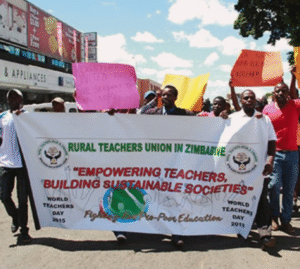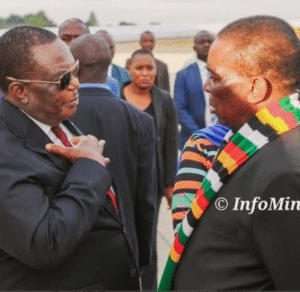MAJORITY OF OPPOSITION ACTIVISTS DENIED BAIL AMID RISING TENSIONS

In a significant legal development, the High Court has recently upheld the decision of a lower court to deny bail to 73 out of 74 opposition activists, intensifying the political climate ahead of a crucial regional summit. The activists, affiliated with the opposition CCC party, include notable figures such as the former MP and minister Jameson Timba. This ruling comes amidst heightened government measures against potential demonstrations, casting a shadow over the Southern African Development Community (SADC) summit scheduled to take place in Harare on August 17.
The sole exception in this sweeping ruling was Maxwell Sande, whose bail was granted due to considerations of his age. This decision underscores a broader narrative of control and suppression that is unfolding within the nation, as authorities brace for what they perceive as threats to public order.
These opposition members were apprehended and accused of orchestrating an unlawful assembly with the intent to stage anti-government protests. This accusation and subsequent denial of bail align with a broader governmental crackdown on both real and imagined threats of unrest, a strategy that has gained momentum in light of recent protests in Kenya, which seem to have stoked the flames of fear among local authorities.
Justice Munamato Mutevedzi, in his disposition, stated that there was no misdirection by the magistrate’s court in its original assessment that deemed the appellants unfit for bail. According to Justice Mutevedzi, the magistrate exercised her discretion judiciously, leaving him no ground to overturn her decision, except in the case of Sande.
This judicial stance not only reflects the court’s strict adherence to the magistrate’s judgments but also highlights a pervasive governmental strategy to mitigate potential disruptions during the upcoming regional summit. The demographic profile of the detainees, mainly hailing from the suburbs of Chitungwiza, Epworth, and Hatcliffe, and predominantly under forty years of age, paints a picture of targeted clampdowns on specific communities and demographic segments known for their political activism.
The implications of this ruling are profound, stretching beyond the confines of the courtroom. By denying bail to these opposition activists, the government effectively sidelines a significant number of its critics, ensuring a quieter, more controlled environment as it hosts regional leaders. This move, however, does not come without consequences. It raises serious questions about the state of democracy and human rights in the country, casting a long shadow over its international image especially in the eyes of its SADC partners.
Furthermore, the decision sets a worrying precedent for how dissent and political opposition are treated in a country already marred by accusations of rights violations and autocratic governance. The activists’ affiliation with the CCC, a prominent opposition party, underscores the political undercurrents influencing judicial decisions and the broader strategy of the ruling party to maintain its grip on power.
As the SADC summit approaches, the eyes of the international community will be closely watching Harare, not just for the outcomes of the regional discussions, but for signs of whether the host nation adheres to the principles of justice and democracy it purports to uphold. The treatment of opposition activists will undoubtedly be a litmus test for Zimbabwe’s commitment to these values.
In conclusion, while the High Court’s decision to deny bail to the majority of these activists may have been legally justified under national law, it undeniably serves a strategic political purpose. As Zimbabwe positions itself on the regional stage, the handling of this case may well determine the country’s diplomatic trajectory in the coming years, influencing not only its regional relations but also its internal political landscape.




